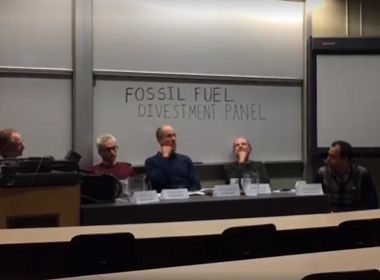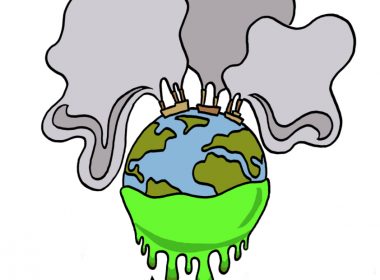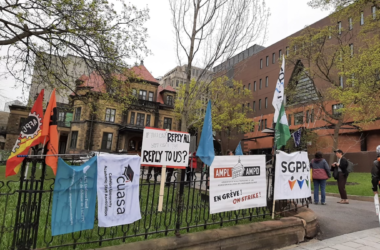In the Feature of the week: A reflection on the lack of diversity among professors and staff at McGill University, including interviews with faculty members to highlight ongoing challenges and the university’s efforts for inclusion.
Search Results for "McGill Professors"
Association of McGill Professors of Law to become first faculty union at McGill
A decision rendered by Quebec’s Tribunal administratif du travail (TAT) on Nov. 7 certified the Association of McGill Professors of Law (AMPL) as a union and bargaining agent for tenured and tenure-track professors at the Faculty of Law. This is the first time in McGill’s history that an individual faculty[Read More…]
Several McGill professors vocalize demands for vaccine mandate on campus
With the return to in-person classes for the Fall 2021 term, some students have expressed concerns about the McGill administration’s current COVID-19 safety measures, while several faculty members have voiced frustrations about McGill’s proposals for in-person teaching during the Fall. Central to the unease about the administration’s plans for the[Read More…]
McGill professors debate the effectiveness of fossil fuel divestment
“The research shows that [divestment] does make a difference,” Mikkelson said. “The most comprehensive study [of divestment movements] was done at Oxford, and they looked at other divestment campaigns that didn’t necessarily cripple the industries they were targeting, but what they did do is make a big public impact, and that spurred governments to take action [….] Divestment creates impact by raising awareness, stigmatizing target companies, and influencing legislation.”
Etzion further emphasized the status of divestment as a social rather than economic movement.
“I don’t really perceive [fossil fuel divestment] as a financial tactic,” Etzion said. “It’s about something much bigger than what you invest in, it’s actually a social movement. And the objective of this tactic is to de-legitimize an entire industry. [Universities] are very influential in how the world perceives issues, and [divestment] empowers people to envision a world that is not running on a path to destruction.”
McGill professors receive $3 million grant to study emissions from agriculture
Many of the cutting-edge researchers at McGill’s Faculty of Agricultural and Environmental Sciences at the Macdonald Campus hope that their work will change the course of global warming. Professor Chandra Madramootoo and Associate Professor Grant Clark in the Department of Bioresource Engineering are no exception. The professors received a combined sum of[Read More…]
McGill professors discuss implications of U.S. elections
In the Nov. 6 American presidential election, Democrat incumbent Barack Obama secured a narrow win over Republican nominee and former Massachusetts Governor Mitt Romney. Although Obama gained a 332-206 lead in electoral college votes, his share of the popular vote—just over 50 per cent—was notably lower than the 52.7 per[Read More…]
Former McGill professors inducted into Canadian Medical Hall of Fame
Drs. Albert J. Aguayo and Jonathan C. Meakins, two leading figures in McGill’s Faculty of Medicine, are set to be inducted into the Canadian Medical Hall of Fame in 2011. “The Medical Hall of Fame is one of the most prestigious groups of people that have [had] a long lasting[Read More…]
AMPL asserts Fall term in jeopardy as law professors reach an impasse with McGill
The Association of McGill Professors of Law (AMPL) met with McGill on June 7 as part of their ongoing collective agreement (CA) negotiations. The CA, which will set the terms of employment for tenured and tenure-track professors in the Faculty of Law, has been under negotiation for over 500 days—since[Read More…]
Law professors call indefinite strike in attempts to bring McGill back to the bargaining table
The Association of McGill Professors of Law (AMPL) called an indefinite strike on April 24 as negotiations stalled over their collective agreement (CA) with McGill. The CA, which will determine faculty governance as well as the pay and working conditions of law professors at the university, has been under negotiation[Read More…]
Arts professors and faculty lecturers form McGill’s third and largest faculty union
With over 9,000 students and more than 300 staff members, the Faculty of Arts is the largest on campus. Despite its size, the Association of McGill Professors of the Faculty of Arts (AMPFA) surpassed the number of signed union cards necessary to file for certification at the Tribunal Administratif du[Read More…]














